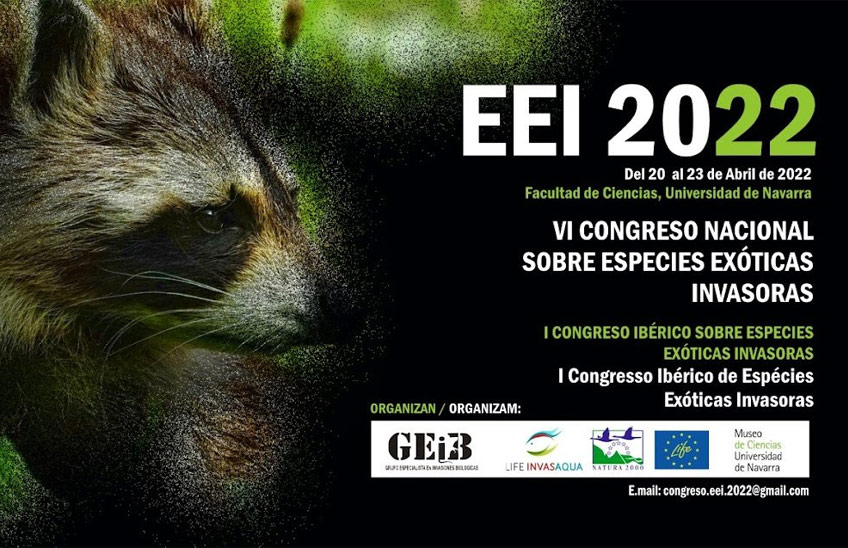The ethical management of invasive species and emerging diseases, to discussion in the VI National congress
The University of Navarra will host from April 20 to 23 the VI National congress on Invasive Alien Species (IAS), in which experts will discuss the progress and challenges posed by biological invasions.

21 | 04 | 2022
The meeting, organized by the group Specialist in Biological Invasions (GEIB), at partnership with the University of Navarra and the Life Invasaqua program, will bring together 160 participants and more than a hundred communications.
The goal, to share the efforts made to deal with biological invasions, which have multiplied in recent years, and to advance both in its management and in the restoration of the damaged native biodiversity, as explained the coordinator of congress and GEIB, Laura Capdevila-Argüelles.
This problem affects all territorial areas (local, regional and national) and multiple initiatives are being developed by different institutions and entities (administrations, universities, companies, NGOs) to address it. Therefore, it is important to share progress and failures, discuss future needs or set priorities, he stressed.
This edition will focus on aquatic invasive species, emerging diseases related to the introduction of IAS in Europe that affect both humans and wildlife, and how to manage this problem in an ethical manner. Among the emerging diseases, cases such as the chikungunya virus, which appeared in Europe with the arrival of the tiger mosquito, or the baylisascaris parasite, derived from the introduction of the raccoon, will be analyzed. Both cause encephalitis in humans.
What to do with the animals and plants that unintentionally invade us, will be another of the questions to discussion, since, in the eyes of public opinion, it is very important to seek mechanisms that take ethics into account and that, at the same time, allow us to put an end to the problem posed by invasive species. "Invasive alien species have become one of the greatest threats to biodiversity and have a strong impact on our economies. It is a global problem that needs to be tackled in a global way," said Rafael Miranda, researcher of the Biodiversity and Environment Institute of the University of Navarra and member of the European project LifeInvasaqua.
Therefore, the congress will bring together "scientists, managers, administrations and other entities in order to share our knowledge and experiences, and thus advance in decision-making," he added.
On this occasion, the event, which is held every three years, will have the special participation of the European project Life Invasaqua on invasive alien species in freshwater and estuarine systems, co-funded by the European Union to advance awareness and training on IAS in Spain and Portugal.
